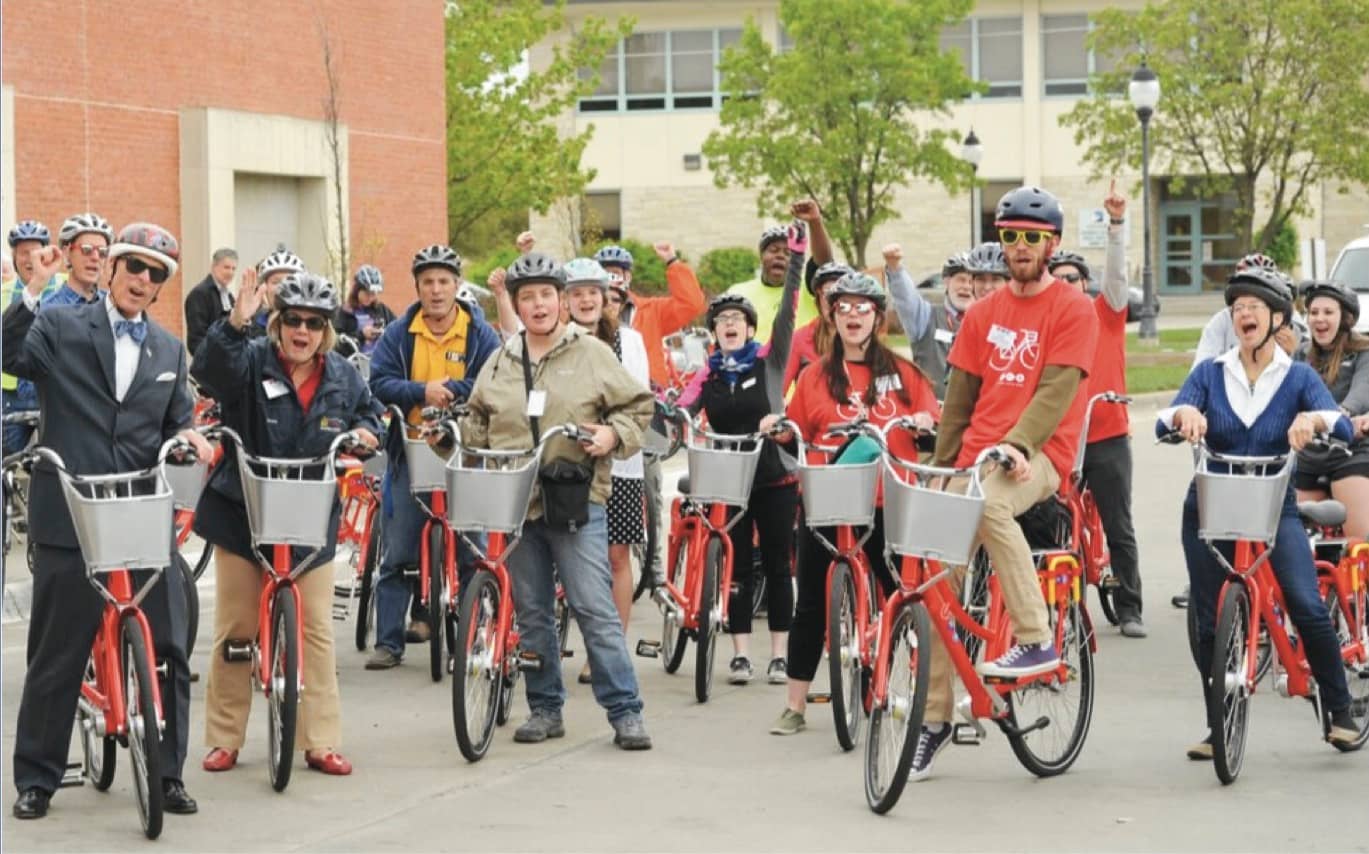
Bike share programs provide bicycles to the public for short-use trips through a paid membership or pay-as-you-go fee structure, but how do such programs impact community health, if at all?
A Health Impact Assessment was undertaken for the Topeka Bike Share program between Dec. 2014 and Dec. 2015. The final report is now available and can be downloaded by clicking the link below.
Topeka Bike Share Health Impact Assessment Final Report
The Topeka Bike Share HIA was conducted to inform how the implementation and possible future expansion of bike share in Topeka, Kansas, could impact health by assessing how bike share, cycling, or active transport might impact levels of physical activity, safety and injury, access to resources and quality of life. Health Impact Assessment is a tool and framework for assessing the impact of a proposed project, policy, or program on specific population health outcomes prior to or during implementation (World Health Organization, 2015). Recommendations are developed from the evidence found during the HIA and provided to decision-makers.
The Topeka Bike Share Program, launched in April 2015, makes available 100 bicycles across 10 bike stations in the City of Topeka for residents, workers, and visitors to rent for active transport and leisure. Conversations with the Topeka Metropolitan Transit Authority (Topeka Metro) underscored a need for assessing the potential impact of the bike share. Findings were presented at a public board meeting to the members of the Board of Directors at Topeka Metro and area stakeholders were given an opportunity to provide input on proposed recommendations. The final report has been finalized and delivered to the Topeka Metro Board of Directors and the Director of Bike Operations for review. As of Jan. 2016, Topeka Metro has ordered another 100+ bicycles for the bike share program and has vocalized their intent to use the HIA recommendations to inform placement of the bicycles in the community in order to promote health and equity. A community survey is also in the process of being implemented by Topeka Metro to identify facilitators and barriers to using bike share, as well as community needs related to transportation overall.
Reference: World Health Organization. (2015). Social Determinants of Health. Retrieved March 29, 2015 from: http://www.who.int/social_determinants/thecommission/en/
